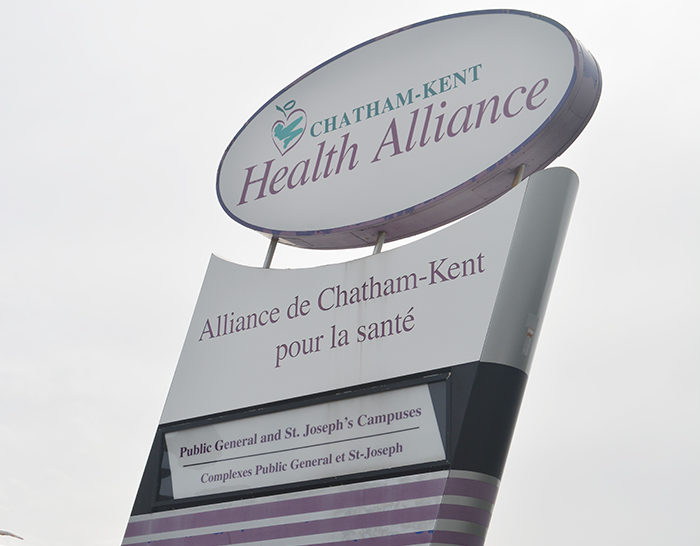
By Pam Wright
Local Journalism Initiative Reporter
The surge of the highly transmissible COVID-19 omicron variant and the toll of caring for critically ill unvaccinated patients have brought the Chatham-Kent Health Alliance to the precipice.
With the 10-bed ICU at full capacity, Lori Marshall, president and CEO of the CKHA told reporters Jan. 4 the community is at a “crossroads.”
Marshall said patients are now being transferred out of Chatham-Kent with two relocated to London.
With a record number of 34 covid patients – 25 of whom are not vaccinated – the hospital is facing the greatest strain on its services since the onset of the pandemic.
Marshall told the media the hospital’s current position is “unsustainable,” making it difficult to provide general care to the community
Currently, the CKHA has the highest critical care occupancy of any hospital in the region.
Of the 15 patients occupying the alliance’s 22 critical care beds, 14 have not been immunized against COVID-19. In the ICU, nine patients are covid positive.
According to Caen Suni, vice-president of clinical programs and operations, 58 staff are now off due to being exposed or having the virus.
That number is expected to rise, Suni said, adding employees will be redeployed from other departments to deal with shortages.
Because all non-emergent surgeries and procedures have been paused under an Ontario Health directive, Suni said 14 operating room staffers will be redeployed with the possibility of adding a couple more ICU beds.
The surgery pause will see the postponement of 175 procedures a week. However, emergency and urgent surgeries, including cancer surgeries, will continue.
Both Marshall and Chief of Staff Dr. Pervez Faruqi issued urgent pleas to the unvaccinated.
Faruqi challenged those who are “on the fence” to protect themselves, adding they should also look to protect their families and the community.
Faruqi said the numbers are “very telling,” providing proof the vaccine works to reduce catastrophic illness.
“The unvaccinated are getting sicker and sicker,” he said.
Marshall echoed his comments, adding the vaccine is essential to slow the spread of the virus and ease the pressure on burned-out health care workers.
“Our staff and physicians have provided excellent care in the past 18 months,” Marshall noted. “Getting the vaccine is the best thing the community can do to help us.”
The current measures have been put into place until Jan. 17.






